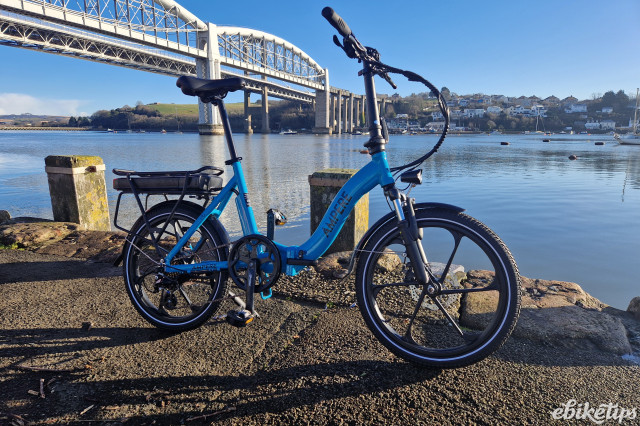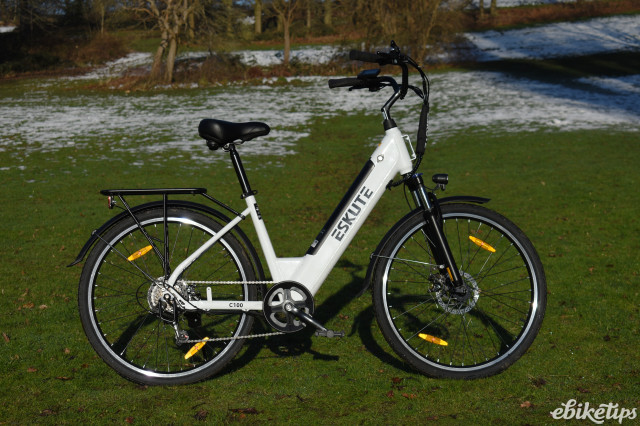A new study has found that while van drivers and fleet operators see the benefits of e-cargo bikes, concerns about infrastructure mean that most assume electric vans are “the logical next step” towards hitting the UK’s emissions targets.
The number of vans on UK roads has doubled in the past two decades and electric van adoption remains slow, with just over 31,000 electric vans out of over 4.6 million vehicles.
E-cargo bikes, with the ability to carry up to 300kg in weight and much lower carbon emissions, offer an alternative – particularly in urban areas where they have been shown to be quicker for deliveries than vans.
Despite this – and also the much lower cost of investing in one – they remain less visible than in other European countries. The recent Sharing The Load report by independent think tank Green Alliance explores what policies could lead to a greater number of e-cargo bikes on the road.
The report says that if the UK can switch just 7.5 per cent of urban motor traffic from diesel vans to e-cargo bikes, the annual carbon savings would be greater than the impact of eliminating all UK domestic aviation emissions.
Barriers
The report draws on focus groups and interviews conducted by Britain Thinks which revealed that, for sole traders in particular, e-cargo bikes are seen as a risk.
Concerns raised included security risks, the challenge of carrying large volumes of cargo and poor cycling infrastructure.
Some of this amounts to lack of awareness of what e-cargo bikes are actually capable of and one of the report’s recommendations is that the government make efforts to highlight how they can be a viable option for a range of jobs.
We’ve previously reported on a number of plumbers who are making use of e-cargo bikes, for example, including Shane Topley in London, Martin Broer in Derby and NippyChecks in Bristol.
Topley is quoted in the report as saying: “I’m no eco-warrior but I really have become a convert. I enjoy cycling past motionless traffic and adopting the bikes means I can get to a range of jobs more quickly than I used to. People are always surprised by how much I can carry on the bike. I can attach a ladder to the outside and carry all the tools I need with me.”
Another contributor is Simon Backler, the founder of Mid-Sussex Electrical, who said: “Our customers love the fact that we turn up on a cargo bike and are always surprised how much we can fit on it. The novelty factor gains our business a lot of free publicity.
“The cargo bike saves our Electrical Contracting business £100 a day when we use it in central London as we avoid the costs of fuel, congestion charging, parking charges and emission zones.”
Recommendations
The Green Alliance’s other recommendations include:
- ‘Try before you buy’ opportunities via local authority rental schemes, similar to the E-Move scheme we reported on earlier this week
- Providing financial support for purchasing
- Improving infrastructure for e-cargo bikes wherever possible
Johann Beckford, policy adviser at Green Alliance, said: “E-cargo bikes are not only an exciting solution to reducing carbon emissions, they can also help tackle air pollution, while improving productivity and cutting journey times in urban areas.
“For many businesses swapping a diesel van for an e-van makes the most sense, but there is also significant potential for more journeys to be made using e-cargo bikes. We need to see the government do more to raise awareness and make it easier for businesses to make the switch.”
Alasdair Pearce, associate director at BritainThinks, added:
“It was fascinating to speak with e-cargo bike users and hear how passionate they are about the benefits they have seen switching to an e-cargo bike.
“At the same time, with small businesses across the country feeling pressure from increasing fuel costs and rising inflation, as well as increasing customer awareness around sustainability, it was clear there is a real potential for e-cargo bike use to expand in the future. Improving cycling infrastructure in our cities can be something that empowers small businesses as well as contributes to carbon savings.”
To find out more, take a look at our guide to the best electric cargo bikes.





